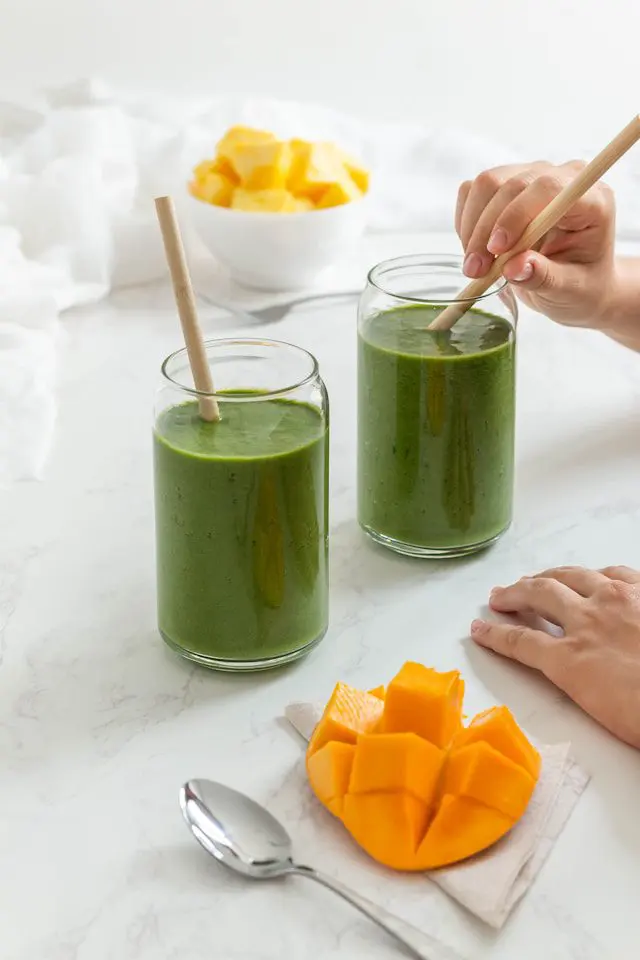The Importance of Gut Health
Gut health is more than just a trendy topic; it’s a critical component of your overall well-being. The gut, often referred to as the “second brain,” plays a pivotal role in digestion, nutrient absorption, and even immune function. A healthy gut ensures that your body can efficiently process food, extract vital nutrients, and fend off harmful pathogens. Ignoring gut health can lead to a cascade of issues, from digestive disorders to chronic diseases. Thus, maintaining a balanced gut microbiome is essential for sustaining good health and vitality. In this guide, we will talk about how to heal your gut naturally with easy, practical tips and advice.

What Does It Mean to Heal Your Gut?
Healing your gut involves restoring balance to the diverse ecosystem of bacteria, fungi, and viruses that inhabit your digestive tract. This process often includes eliminating harmful substances, incorporating beneficial foods, and adopting lifestyle practices that support gut health. Healing the gut isn’t a one-size-fits-all approach; it requires a tailored strategy that addresses individual dietary needs, stress levels, and existing health conditions. By understanding and addressing the root causes of gut imbalances, you can pave the way for improved digestion, enhanced immunity, and better overall health.
Overview of Natural Solutions
Natural solutions for gut health focus on dietary changes, lifestyle modifications, and the use of natural remedies. Incorporating fiber-rich foods, probiotics, and fermented foods into your diet can significantly improve gut health. Additionally, managing stress, exercising regularly, and ensuring adequate sleep are crucial lifestyle changes that support gut healing. Natural remedies like herbal supplements, essential oils, bone broth, and aloe vera also play a significant role in soothing and repairing the gut lining. Embracing these holistic approaches can lead to long-lasting improvements in your digestive health and overall well-being.
Understanding Your Gut
The Role of the Gut in Overall Health
The gut does much more than process food; it is a central player in your body’s overall health. It houses trillions of microorganisms that aid in digestion, produce essential vitamins, and bolster the immune system. These gut microbes also communicate with the brain through the gut-brain axis, influencing mood and mental health. A well-functioning gut ensures optimal nutrient absorption, toxin elimination, and immune response, making it indispensable for maintaining good health.
Common Signs of Poor Gut Health
Signs of poor gut health can be varied and sometimes subtle. Common symptoms include bloating, gas, diarrhea, constipation, and abdominal pain. Beyond digestive issues, poor gut health can manifest as fatigue, skin problems, and even mental health issues like anxiety and depression. If left unaddressed, these symptoms can escalate, leading to more serious health conditions such as irritable bowel syndrome (IBS), leaky gut syndrome, and autoimmune diseases.
Factors That Affect Gut Health
Several factors can impact gut health, including diet, stress, sleep, and lifestyle choices. A diet high in processed foods, sugar, and artificial additives can disrupt the balance of gut bacteria. Chronic stress and lack of sleep can weaken the gut lining and alter the gut microbiome. Additionally, overuse of antibiotics and non-steroidal anti-inflammatory drugs (NSAIDs) can harm beneficial bacteria and promote gut inflammation. Understanding these factors can help you make informed decisions to protect and heal your gut.
Diet and Nutrition
Foods That Promote Gut Health
Incorporating a variety of plant-based, fiber-rich, whole foods into your diet is key to promoting gut health. Fruits, vegetables, legumes, and whole grains provide the necessary nutrients to feed beneficial gut bacteria. Leafy greens like spinach and kale, fibrous vegetables like carrots and broccoli, and fruits like apples and bananas are excellent choices. These foods not only support digestion but also help maintain a healthy gut microbiome.
Probiotics and Prebiotics: What You Need to Know
Probiotics are live beneficial bacteria that, when consumed in adequate amounts, confer health benefits to the host. They are found in fermented foods like yogurt, kefir, sauerkraut, and kimchi. Prebiotics, on the other hand, are non-digestible fibers that feed these beneficial bacteria, promoting their growth and activity. Foods rich in prebiotics include garlic, onions, leeks, asparagus, and bananas. Together, probiotics and prebiotics create a symbiotic relationship that enhances gut health and overall well-being.
You might also consider probiotic supplements. We recommend Garden of Life Probiotics. Their Once Daily Women’s capsules support women’s digestive, immune, and vaginal health with 50 billion CFU from 16 diverse probiotic strains, including L. reuteri and L. fermentum. This non-GMO, gluten-free, shelf-stable probiotic also includes an organic prebiotic fiber blend to promote good bacteria growth. They also offer a probiotic specially made for men.
The Benefits of Fermented Foods

Fermented foods are a powerhouse of probiotics, enzymes, and beneficial bacteria that aid digestion and improve gut health. Consuming fermented foods like yogurt, kefir, miso, and tempeh can enhance the diversity and function of your gut microbiome. These foods also help balance stomach acid levels and support the production of digestive enzymes, making them invaluable for maintaining a healthy gut. Learn more about making your own fermented foods with fermenting kits.
The Impact of Sugar and Processed Foods on Your Gut
High consumption of sugar and processed foods can have a detrimental impact on gut health. These foods promote the growth of harmful bacteria and yeast, leading to an imbalance in the gut microbiome. They can also cause inflammation and damage the gut lining, contributing to conditions like leaky gut syndrome. Reducing your intake of sugary and processed foods is crucial for restoring and maintaining gut health.
Hydration and Its Role in Gut Health
Staying hydrated is essential for digestive health. Water helps break down food, absorb nutrients, and eliminate waste. Proper hydration also supports the mucus lining of the intestines, protecting the gut wall from damage. Drinking adequate amounts of water daily can prevent constipation and promote a healthy digestive system. Learn more about the benefits of hydration.

Convenient Healthy Eating with a Blender
For those looking to easily incorporate more fruits, vegetables, and fiber-rich foods into their diet, a blender is a must. The NutriBullet Personal Blender is a compact, powerful tool for making smoothies, soups, and more. It features a 600W motor, nutrient-extraction blades, and easy-to-clean design. With free shipping on orders over $65 and a 1-year warranty, it offers a hassle-free way to incorporate healthful nutrition into your daily routine.
Convenient Healthy Eating with Meal Delivery
For those with a busy lifestyle, maintaining a gut-healthy diet can be challenging. Sakara Life Meal Delivery offers a convenient solution with organic, plant-based meals designed to support gut health and overall wellness. Customize your weekly plan with breakfast, lunch, and dinner options that are gluten-free, dairy-free, and non-GMO. Subscribers enjoy flexible scheduling, free delivery, and exclusive perks like probiotics and detox teas. Enhance your health journey with nutrient-dense, ready-to-eat meals that nourish the body and support a healthy lifestyle.
Convenient Healthy Shopping
For those seeking convenient access to gut-healthy foods, Thrive Market offers an online marketplace with a wide selection of organic and non-GMO products. They offer up to 30% savings on organic, non-GMO groceries and members free gifts and exclusive deals. Thrive Market delivers to every zip code in the lower 48 states.
Lifestyle Changes
The Importance of Regular Exercise

Regular physical activity is not only good for your body but also for your gut. Exercise stimulates the movement of muscles in the digestive tract, promoting regular bowel movements and reducing the risk of constipation. It also helps maintain a healthy weight, reduces stress, and improves mood, all of which positively affect gut health.
How Stress Affects Your Gut
Chronic stress can wreak havoc on your gut. It can alter the gut microbiome, increase gut permeability (leading to leaky gut), and exacerbate symptoms of gut disorders. Stress also affects digestion by slowing down or speeding up the digestive process, leading to discomfort and irregularity. Managing stress is crucial for maintaining a healthy gut.
Tips for Managing Stress Naturally
Managing stress naturally involves incorporating relaxation techniques into your daily routine. Practices such as meditation, yoga, deep breathing exercises, and mindfulness can help reduce stress levels. Engaging in hobbies, spending time in nature, and maintaining social connections are also effective ways to manage stress and support gut health. See more ways to manage stress.
The Role of Sleep in Gut Health
Adequate sleep is vital for gut health. During sleep, the body repairs and regenerates tissues, including the gut lining. Lack of sleep can disrupt the balance of gut bacteria and increase inflammation, negatively affecting digestion. Prioritizing good sleep hygiene, such as maintaining a regular sleep schedule and creating a restful environment, can significantly improve gut health. See more ways to improve your sleep.
Tracking Your Health
Monitoring your health metrics can provide valuable insights into your overall well-being, including gut health. The Oura Ring offers precise health tracking with over 20 biometrics, including heart rate and temperature. With a long battery life, durable titanium build, and research-grade sensors, it provides insights into sleep, activity, readiness, and stress. The ring supports various health apps, making it a versatile tool for comprehensive wellness monitoring.
Natural Remedies
Herbal Supplements for Gut Health
Herbal supplements can provide a natural boost to gut health. Herbs like peppermint, ginger, and turmeric have anti-inflammatory and soothing properties that can alleviate digestive discomfort. Slippery elm and marshmallow root can help protect and heal the gut lining. Incorporating these herbs into your routine can support gut healing and overall health.
Essential Oils: Do They Help?
Essential oils like peppermint, ginger, and fennel have been used traditionally to support digestive health. Peppermint oil can relieve symptoms of IBS, while ginger oil aids digestion and reduces nausea. Fennel oil can help alleviate bloating and gas. However, it is important to use essential oils safely and consult a healthcare professional before incorporating them into your regimen.
The Power of Bone Broth

Bone broth is rich in collagen, amino acids, and minerals that support gut health. It helps repair the gut lining, reduce inflammation, and improve digestion. Sipping on bone broth regularly can provide essential nutrients that promote a healthy gut and overall well-being.
Aloe Vera and Its Benefits
Aloe vera is known for its soothing and healing properties. It can help reduce inflammation in the gut, promote the healing of the gut lining, and improve digestion. Consuming aloe vera juice can provide relief from digestive discomfort and support overall gut health.
Healthy Habits
The Importance of Chewing Food Properly
Chewing your food thoroughly is the first step in the digestive process. It helps break down food into smaller particles, making it easier for your stomach and intestines to digest and absorb nutrients. Proper chewing also stimulates the production of digestive enzymes, which are essential for efficient digestion. One tip to help you build this habit is to put your knife and fork down after each bite. Another is to turn off the tv, radio, and other media and focus solely on eating. You would be amazed how much more you savor your food and chew it properly.
Tips for Mindful Eating
Mindful eating involves paying attention to the sensory experience of eating and being present in the moment. Eating slowly, savoring each bite, and listening to your body’s hunger and fullness cues can improve digestion and prevent overeating. Mindful eating also helps reduce stress and promotes a healthy relationship with food.
Special Considerations
Healing Your Gut After Antibiotics
Antibiotics can disrupt the balance of gut bacteria, leading to digestive issues. After a course of antibiotics, it is important to restore gut health by consuming probiotics and prebiotics, eating a nutrient-rich diet, and avoiding processed foods. Supporting your gut during this time can help replenish beneficial bacteria and prevent long-term damage.
Gut Health for Specific Conditions (IBS, Leaky Gut, etc.)
Certain conditions, like IBS and leaky gut syndrome, require specific approaches to healing. For IBS, identifying and avoiding trigger foods, managing stress, and consuming a high-fiber diet can help. Leaky gut syndrome may benefit from eliminating inflammatory foods, consuming gut-healing nutrients like collagen and glutamine, and supporting the gut with probiotics.
When to Seek Professional Help
While many gut health issues can be managed with natural solutions, there are times when professional help is necessary. If you experience severe or persistent symptoms, such as chronic pain, significant weight loss, or blood in your stool, it is important to consult a healthcare professional. They can provide a proper diagnosis and recommend appropriate treatment options.
Wrapping Up
Healing your gut naturally involves a combination of dietary changes, lifestyle modifications, and natural remedies. By incorporating fiber-rich foods, probiotics, fermented foods, and staying hydrated, you can promote gut health. Regular exercise, stress management, and adequate sleep are also crucial for maintaining a healthy gut.
Taking the first steps to heal your gut can feel overwhelming, but small, consistent changes can lead to significant improvements. Start by incorporating one or two new habits into your routine and gradually build from there. Remember, your gut health is integral to your overall well-being, and investing in it will yield long-term benefits.


Leave a Reply